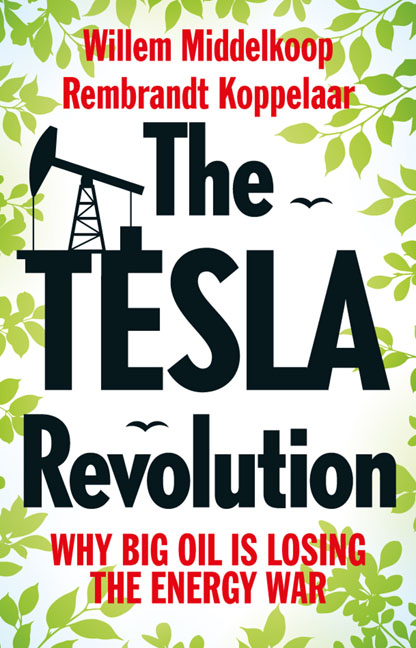Book contents
- Frontmatter
- Contents
- Prologue
- Special Introduction
- Chapter 1 The Tesla Revolution
- Chapter 2 A History of Fossil Fuel Dominance
- Chapter 3 The Petrodollar and the Geopolitics of Oil
- Chapter 4 Peak Oil Revisited: The End of Cheap Oil
- Chapter 5 Climate Change and the World of Energy
- Chapter 6 What Will the Energy Mix of the Future Be?
- Epilogue
- Appendix
- References Prologue
- Register
Prologue
Published online by Cambridge University Press: 12 December 2020
- Frontmatter
- Contents
- Prologue
- Special Introduction
- Chapter 1 The Tesla Revolution
- Chapter 2 A History of Fossil Fuel Dominance
- Chapter 3 The Petrodollar and the Geopolitics of Oil
- Chapter 4 Peak Oil Revisited: The End of Cheap Oil
- Chapter 5 Climate Change and the World of Energy
- Chapter 6 What Will the Energy Mix of the Future Be?
- Epilogue
- Appendix
- References Prologue
- Register
Summary
Nearly 10 years ago, I started investigating the history of oil and how its depletion could impact our postindustrial society. The situation concerned me after I learned about it firsthand from the experienced geologist Colin Campbell (PhD, formerly at BP) who had studied the issue for decades. Would there be enough oil around to fuel society in the centuries or even decades to come?
The book Willem and I coauthored in 2008, The Permanent Oil Crisis, emerged from this concern. Our aim was to raise awareness of the issue of peak oil and the need to transition to alternative forms of energy. Its basic premise was that a structural undersupply of cheap oil would disrupt the world economy, because the peak in conventional oil production was at hand. Oil supplies had been flat for several years, and oil prices were on the rise, with limited new sources of supply in sight. The situation was urgent given the lack of alternatives at the time, and we needed to transition to clean sources of energy.
In this new book, The Tesla Revolution, we examine what has happened in oil markets since then, with almost 10 years of learning added to the mix. Thanks to large-scale shifts towards alternatives over the last decade, our view is more positive now.
The world of clean energy is advancing rapidly thanks to the efforts of countless people who, like us, are concerned about the end of cheap oil, about how fossil fuel-based carbon emissions are linked to climate change, or both. Just as Nikola Tesla, together with Thomas Edison, revolutionized the world 120 years ago by sparking the electrical age, we are now entering a revolution in clean transport, electricity, and heating.
This new ‘Tesla Revolution’ in clean energy is driven primarily by the urgency to scale alternatives to oil in transportation, as signaled by high oil prices.
We know that oil is and will continue to be more expensive than in the early 2000s and prior, since we now need to extract either lesser-quality oil, or at more remote locations, or at far greater depths.
- Type
- Chapter
- Information
- The Tesla RevolutionWhy Big Oil is Losing the Energy War, pp. 7 - 12Publisher: Amsterdam University PressPrint publication year: 2017

